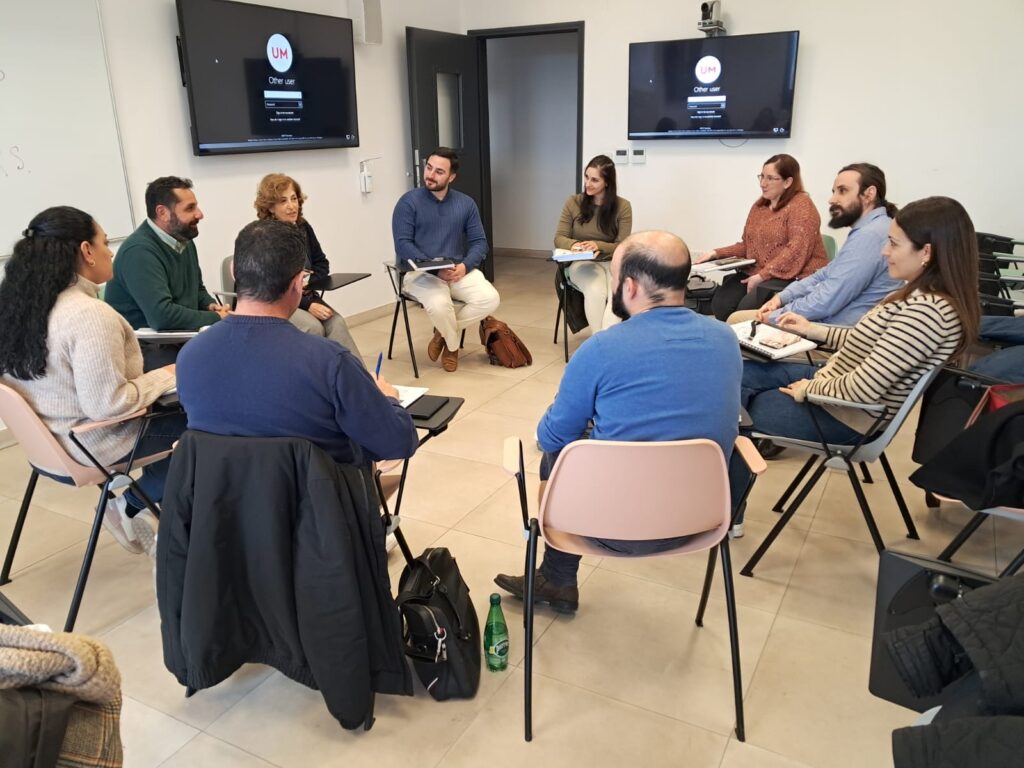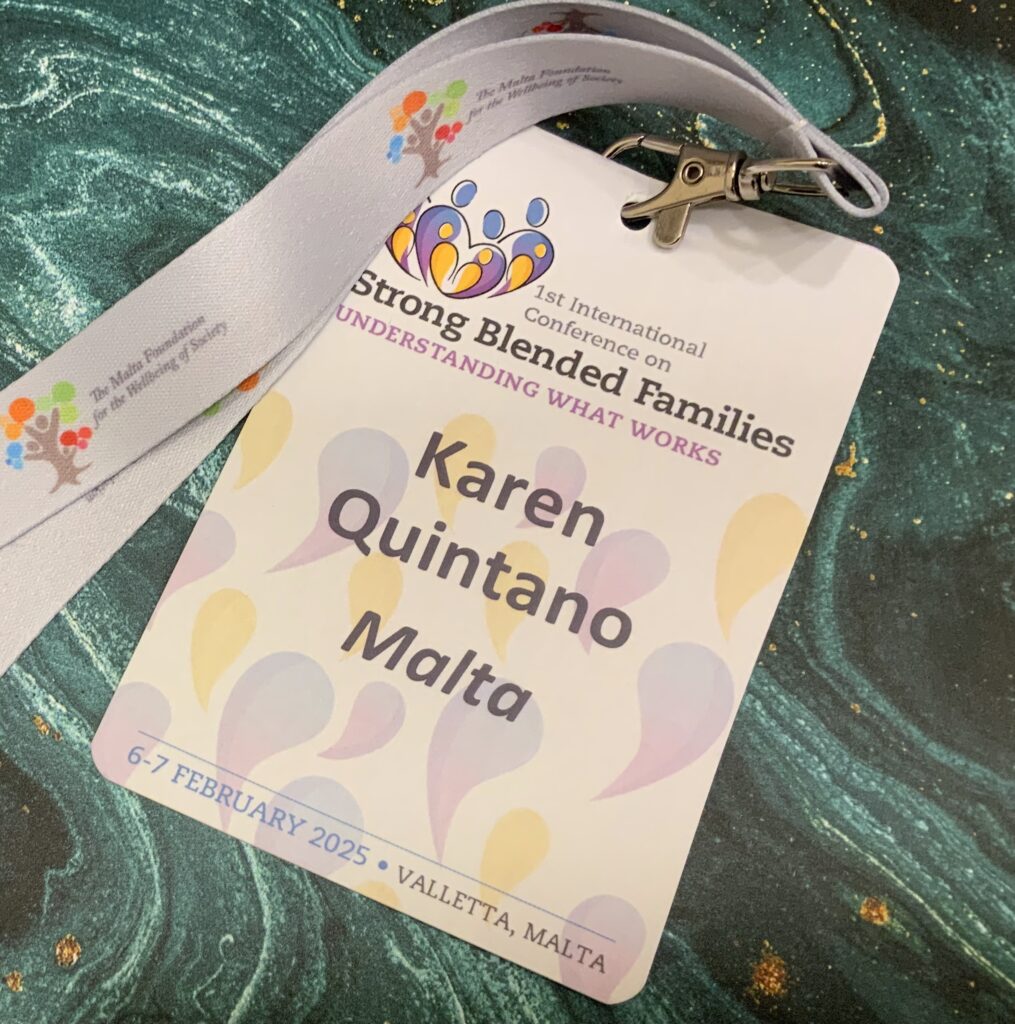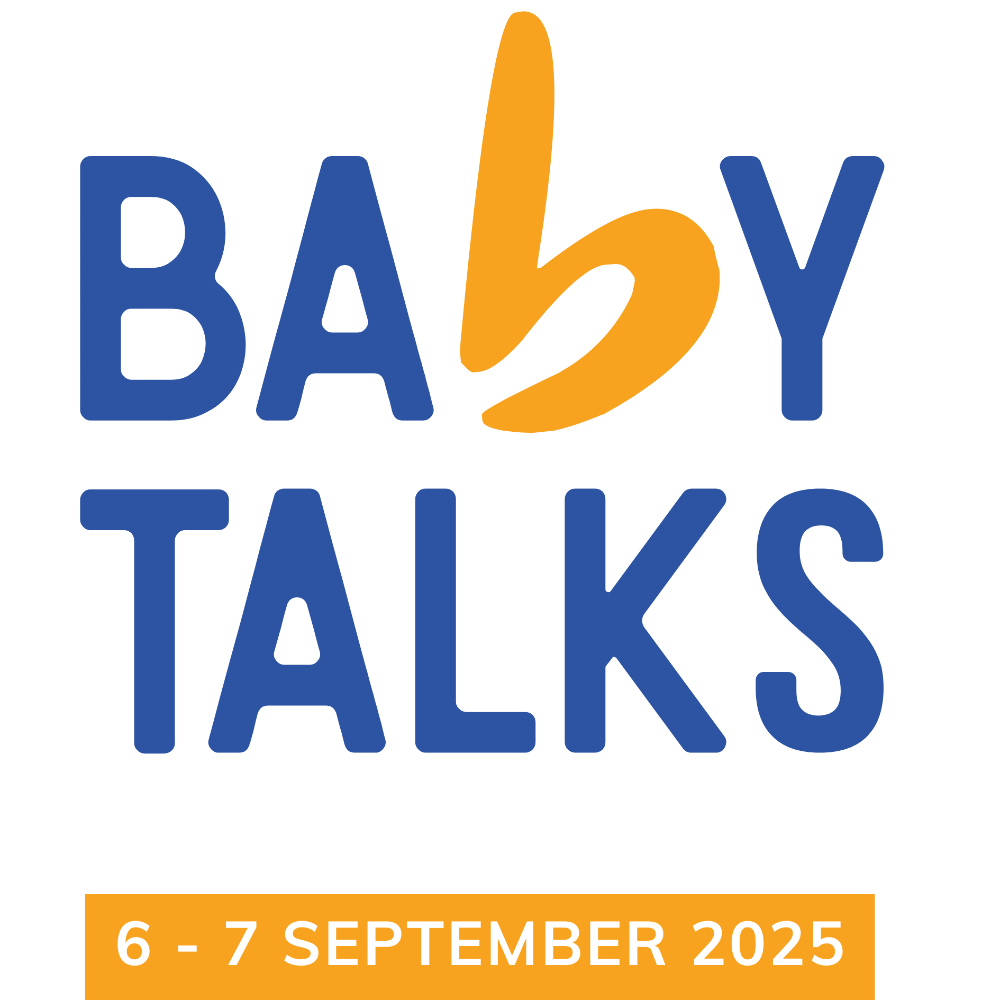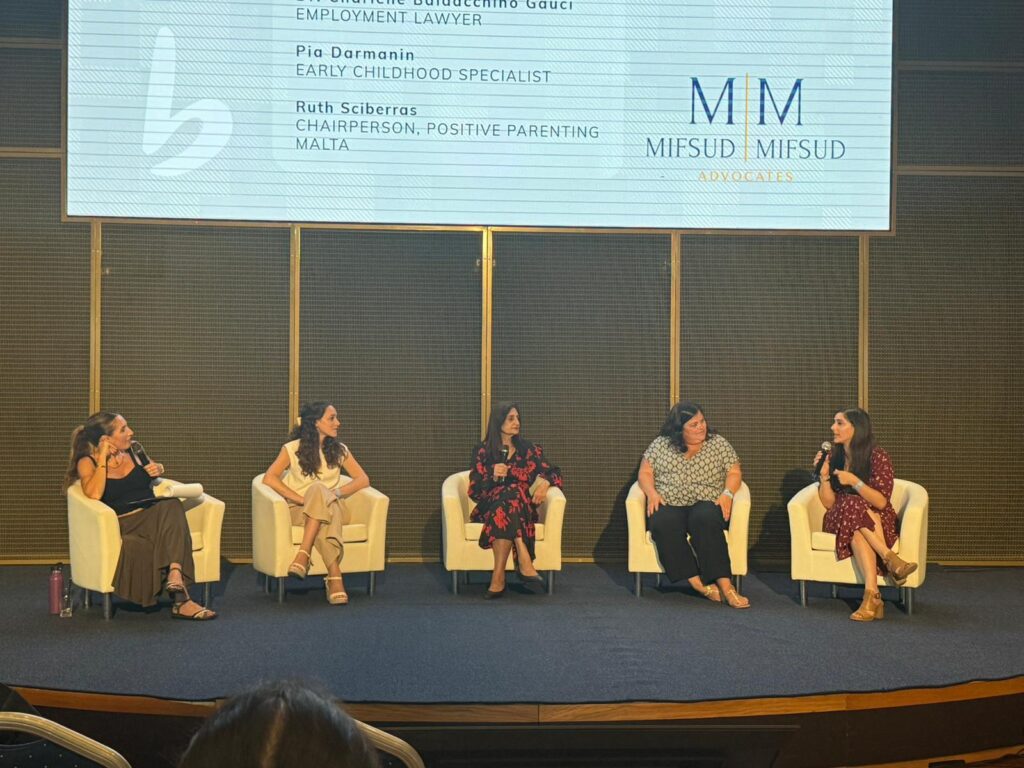2025
Past and ongoing studies, training and events
Adult Attachment Interview (DMM-AAI)
Introduction for Low-Risk and Mild Clinical Conditions, Family Relations Institute
Ongoing Professional Development Training
I’m currently undertaking specialist training in the Adult Attachment Interview using the Dynamic-Maturational Model of Attachment and Adaptation (DMM-AAI), an advanced assessment procedure for understanding adults’ self-protective attachment strategies. This intensive 18-day discourse analysis training represents cutting-edge professional development in attachment assessment, providing sophisticated tools for understanding how individuals adapt to relational danger throughout their lifespan.
Why This Training Matters
The Adult Attachment Interview is a powerful assessment tool that reveals how adults process information about relationships, particularly when faced with danger or threat. The DMM focuses on danger, rather than safety, which orients an understanding of the attachment system in a way that is practical and useful for understanding response to threat and conflict. Unlike traditional attachment models that view patterns as fixed categories, the DMM recognises that attachment strategies can change and mature over time as neurological development makes more complex strategies possible.
This understanding is crucial for effective therapeutic intervention with individuals who have experienced relational trauma or developed complex self-protective strategies.
What I’m Learning
The comprehensive training covers discourse analysis and classification techniques specifically designed for low-risk and mild clinical applications:
Core Assessment Skills:
- Discourse Analysis Techniques: Learning to analyse speech patterns and language use that reveal underlying attachment strategies
- Information Processing Patterns: Understanding how individuals with different attachment styles process cognitive and emotional information differently
- Five Memory Systems Assessment: Systematic evaluation of procedural, imaged, semantic, episodic and working memory systems
- Classification Methods: Mastering the DMM approach to identifying self-protective strategies from interview transcripts
Clinical Applications:
- Treatment Planning: Using attachment assessment to guide therapeutic interventions and avoid potentially harmful approaches
- Therapeutic Language: Developing enhanced sensitivity to how clients communicate and how to respond most effectively
- Risk Assessment: Identifying patterns that may indicate vulnerability to particular types of relational difficulties
- Shared Understanding: Creating a framework for therapist and client to understand relational patterns together
Real-World Application
This isn’t just theoretical assessment training. The programme includes extensive practical work with actual interview transcripts, weekly coding assignments between sessions and the requirement to conduct and submit three Adult Attachment Interviews.
Knowing a person’s self-protective attachment strategy can guide treatment decisions in efficient ways while reducing the probability of misapplied, harmful treatment approaches.
This training fundamentally changes how I listen to clients, understand their communication patterns and structure therapeutic interventions.
This specialised training enhances my ability to work with clients who have developed complex self-protective strategies, providing deeper insight into how early experiences of relational danger shape current functioning and offering more targeted, effective therapeutic approaches.
Masters in Parental alienation studies
After concluding my post-graduate certificate in 2023, I’m currently undertaking the Masters in Parental Alienation Studies, a comprehensive postgraduate programme accredited by the Malta Further & Higher Education Authority. This pioneering course represents cutting-edge training in one of the most complex and challenging areas of family dynamics, equipping professionals with the specialist knowledge and skills needed to work effectively with parental alienation cases.
Why This Training Matters
Parental alienation is a mental condition in which a child, usually in the context of high-conflict separation or divorce, allies strongly with one parent and rejects a relationship with the other parent without a good reason. This form of child psychological abuse causes widespread harm to children, young people, families and society at large. When children lose their relationship with a previously loving parent through psychological manipulation, the consequences can extend throughout childhood and into adulthood. This specialised training addresses a critical gap in professional knowledge, providing evidence-based approaches to assessment, intervention and support.
What I’m Learning
The programme covers eleven comprehensive modules across three qualification levels:
Core Foundation Areas:
- Historical and Contemporary Theory: Understanding the evolution and current research in parental alienation, from 19th-century documented cases to modern evidence-based practice
- Assessment Processes: Mastering the Five-Factor Model and other evidence-based assessment techniques to accurately differentiate parental alienation from estrangement and other contact refusal causes
- Evidence-Based Interventions: Learning specialised intervention methods for mild, moderate, and severe alienation cases, including why traditional therapy approaches often fail
- Legal Report Writing: Developing skills in forensic reporting and expert witness testimony for family court proceedings
- Child Development and Attachment: Understanding how alienation impacts normal development and disrupts healthy attachment patterns
Advanced Practice Areas:
- Research Methods: Designing and implementing research projects in parental alienation studies
- Forensic Interviewing Skills: Developing specialised interviewing competencies for complex family dynamics
- Ethics in Practice: Navigating complex ethical dilemmas when working with psychological manipulation and child abuse
- Personal and Professional Development: Building self-reflexivity and professional resilience when working with high-conflict cases
Real-World Application
This isn’t just academic study. The programme emphasises practical application with case studies, role plays, video presentations, and direct application to current caseloads. I’m developing the expertise to conduct comprehensive assessments, act as a court expert, write forensic legal reports and implement therapeutic interventions across the spectrum of parental alienation severity, from mild inadvertent cases to severe obsessive alienation requiring intensive intervention.
This training positions me within an established field with decades of international research, enabling me to contribute to evidence-based practice and provide specialist support to families navigating these complex and often devastating dynamics.
Award in clinical supervision
I’m currently undertaking the Award in Clinical Supervision, a comprehensive postgraduate programme accredited by the Malta Further & Higher Education Authority. This intensive training aims to equip me with advanced supervisory skills essential for supporting fellow mental health professionals.
Why This Training Matters
Clinical supervision is the lifeline of therapeutic practice, especially since it is a professional requirement that safeguards both practitioners and their clients. Through this course, I’m developing expertise in the multi-layered complexities of supervisory relationships, understanding transference and counter-transference dynamics, and mastering various supervision models.
What I’m Learning
The programme covers four essential modules:
- Models of Supervision: Exploring various theoretical frameworks and their practical applications
- Self-Reflexivity in Supervision: Understanding how the supervisor’s own experiences impact the supervisory relationship
- Enhancing Supervisees’ Competences: Learning collaborative approaches that support professional growth
- Legal and Ethical Issues: Navigating the responsibilities and boundaries of supervisory practice
Practical Application
This isn’t solely focused theoretical learning. I’m actively conducting supervision sessions, analysing video recordings of my supervisory work and maintaining a reflective journal to track my development as a supervisor.
This hands-on approach ensures I can offer evidence-based, ethically sound supervision to colleagues in the field.
This training represents my commitment to not only advancing my own professional practice but also supporting the growth and wellbeing of other mental health professionals in Malta and beyond.
This Award in Clinical Supervision course will be concluded this September 2025 with the Institute of Family Therapy- Malta
Parents as partners
I am currently in the process of becoming an accredited Parents as Partners facilitator and am pleased to share that I have successfully completed Phase 1 of the training and more than half way through Phase 2. This journey is being undertaken in collaboration with the University of Malta and the Ministry for Social Policy and Children’s Rights, reinforcing the national commitment to strengthening families.
Working alongside like-minded professionals who deeply value the importance of the couple’s relationship and its impact on parenting has been a rewarding experience. The shared commitment within this group highlights the vital role that strong, supportive co-parenting plays in a child’s development. I look forward to the next phase of accreditation, eager to continue growing in this role and supporting parents on their journey.
The Parents as Partners programme is a 16-week, evidence-based group intervention designed to help couples strengthen their relationship and co-parenting dynamics for the benefit of their children. Developed with research by Philip and Carolyn Cowan, this programme is grounded in decades of studies demonstrating that the quality of the parental relationship significantly influences child well-being (Cowan & Cowan, 2002). (Tavistock Relationships)
By addressing factors such as communication, conflict resolution, and shared parenting responsibilities, the programme fosters a collaborative and nurturing family environment. Sessions incorporate a mix of creative activities, video clips, discussions, and input from group leaders, providing a safe space to explore both the challenges and joys of family life.
Research highlights that when parents work together effectively, children benefit emotionally, socially, and academically. The Parents as Partners approach ensures that families receive the support they need to navigate challenges and create a stable, loving foundation for their children.

Blended Families Conference
I’m excited to share that I recently attended the 1st International Conference on Strong Blended Families in Malta on 6-7 February 2025. This event was an essential gathering for professionals working with stepfamilies, co-parenting dynamics, and blended family relationships, and I’ve returned with valuable insights to enhance my practice.
Blended families face unique challenges, from navigating co-parenting to fostering strong bonds within stepfamilies. As practitioners, we know there is no one-size-fits-all approach, but this conference brought together some of the leading experts in the field to share practical strategies, research, and real-world solutions.
Key Takeaways from the Conference
Some of the most impactful insights for me included:
✔ Gaining insight from Dr Angela Abela’s presentation on Maltese blended families who are thriving. Her study explored the various factors that contribute to these families’ resilience, highlighting that success in blended families is not only possible but achievable. This research sends a powerful message of hope, demonstrating that with the right support and strategies, blended families can flourish.
✔ Learning from Dawn O. Braithwaite, a leading expert on communication within blended families. She provided practical strategies for fostering stronger, more resilient relationships, reinforcing the idea that communication is at the heart of everything.
✔ Gaining insights from Lawrence Ganong, whose research focuses on effective parenting within stepfamilies. His findings provided evidence-based approaches to raising children in blended families, addressing many of the common struggles families face.
✔ Exploring clinical perspectives from Patricia L. Papernow, a renowned stepfamily therapist. She shared actionable strategies for supporting blended families in navigating complex emotional and relational challenges.
✔ Learning from Drs Tara Santens, Leen Van Vlierberghe, and Barbara Lavrysen, who discussed how Attachment-Based Family Therapy is applied in cases where family conflict is central to the presenting problem. This trust-based, emotion-focused approach seeks to repair interpersonal ruptures and rebuild a secure, emotionally protective parent–child relationship.
Why This Matters for My Work
This conference was not just about theory – it was about practical tools and strategies that can help blended families navigate challenges and build stronger relationships. Whether it’s addressing loyalty conflicts, improving step-parenting dynamics, or facilitating more effective co-parenting, the knowledge gained from this event is invaluable for the families I support.


Baby Talks
I’m excited to share that on 7 September 2025, I had the privilege of joining the Baby Talks Conference as a panel speaker for Redefining Parenting Partnerships. This inspiring session brought together professionals from different fields to explore how becoming parents reshapes relationships, and how couples, workplaces, and communities can respond with understanding and support.
As a family therapist, I spoke about the emotional shifts couples experience when welcoming a baby, and how staying connected through open communication can make this transition more manageable and meaningful. The discussion also highlighted the importance of sharing responsibilities fairly, nurturing resilience as a couple, and advocating for workplaces and communities that reflect the realities of modern family life.
Participating in this conversation was a wonderful opportunity to contribute to a forward-thinking dialogue on supporting parents—not through perfection, but through partnership and shared growth.


